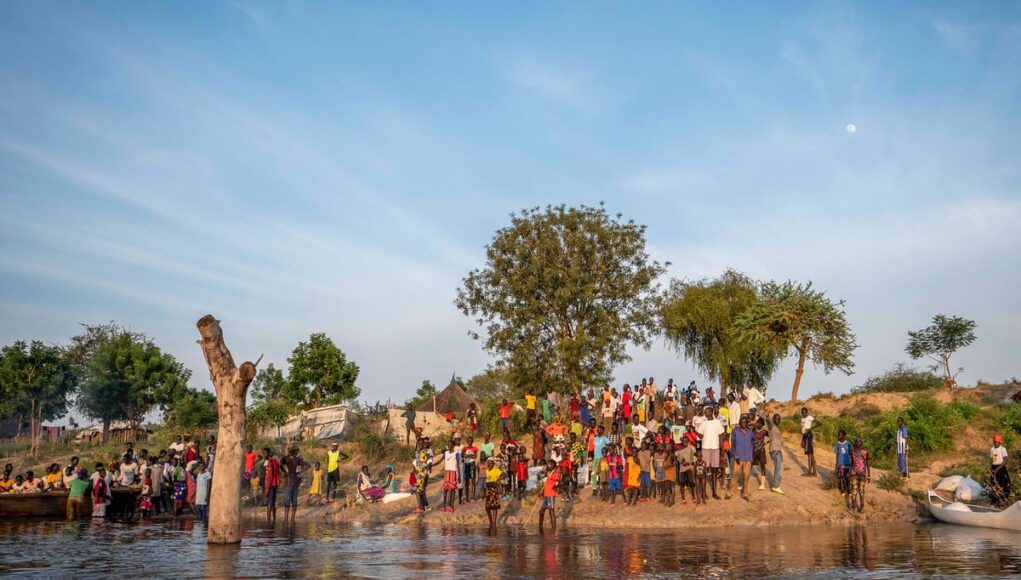Source : NEW INDIAN EXPRESS NEWS
Villagers rely on aid. On a recent day, hundreds of women lined up in a nearby field to receive some from the World Food Program.
Nyabuot Reat Kuor walked home with a 50-kilogram (110-pound) bag of sorghum balanced on her head.
“This flooding has destroyed our farm, killed our livestock and displaced us for good,” the mother of eight said. “Our old village of Gorwai has become a river.”
When food assistance runs out, she said, they will survive on wild leaves and water lilies from the swamp. Already in recent years, food aid rations have been cut in half as international funding for such crises drops.
More than 69,000 people who have migrated to the Jonglei Canal in Ayod county are registered for food assistance, according to WFP.
“There are no passable roads at this time of the year, and the canal is too low to support boats carrying a lot of food,” said John Kimemia, a WFP airdrop coordinator.
In the neighbouring Paguong village which is surrounded by flooded lands, the health centre has few supplies. Medics haven’t been paid since June due to an economic crisis that has seen civil servants nationwide go unpaid for more than a year.
South Sudan’s economic woes have deepened with the disruption of oil exports after a major pipeline was damaged in Sudan during that country’s ongoing civil war.
“The last time we got drugs was in September. We mobilized the women to carry them on foot from Ayod town,” said Juong Dok Tut, a clinical officer.
Patients, mostly women and children, sat on the ground as they waited to see the doctor. Panic rippled through the group when a thin green snake passed among them. It wasn’t poisonous, but many others in the area are. People who venture into the water to fish or collect lilies are at risk.
Four life-threatening snake bites cases occurred in October, Tut said. “We managed these cases with the antivenom treatments we had, but now they’re over, so we don’t know what to do if it happens again.”
SOURCE :- NEW INDIAN EXPRESS








